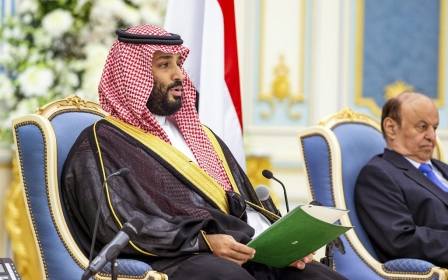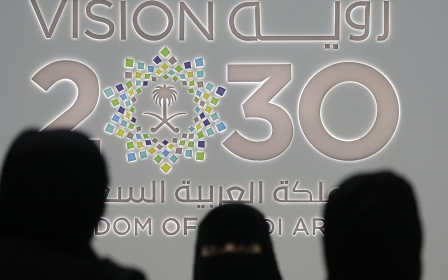Coronavirus: Saudi Arabia's total pandemic cases exceed 50,000

The number of coronavirus cases in Saudi Arabia topped 50,000 on Saturday, the health ministry said.
A ministry official reported 2,840 new cases, taking the cumulative total to 51,980. That was up from an average of about 1,500 new cases a day over the past week, Reuters said.
New MEE newsletter: Jerusalem Dispatch
Sign up to get the latest insights and analysis on Israel-Palestine, alongside Turkey Unpacked and other MEE newsletters
The death toll in the kingdom increased by 10 to 302, the official said on state TV. The kingdom now has the biggest outbreak in the Gulf region.
During a recent briefing with reporters, Saudi Health Minister Tawfiq al-Rabia said a surge in infections over the past two weeks was also the result of an extensive increase in testing by the ministry, aimed at better tracking the coronavirus to curb its spread.
Saudi Arabia recorded its first Covid-19 infection on 2 March, several weeks after the initial outbreak in Asia.
The Saudi government now plans to re-impose a 24-hour curfew across the entire country during the five-day Eid al-Fitr holiday at the end of May in a bid to contain the resurgent epidemic, it said earlier this week.
"A total curfew will be imposed in all cities and regions across the Kingdom," from 23 May until 27 May, the Saudi Ministry of Interior said in a statement carried by the Saudi Press Agency.
With the numbers soaring, Saudi authorities may also be forced to call off this year's Hajj pilgrimage.
Last month, the Saudi government minister for Hajj and Umrah asked Muslims around the world to wait until there is more clarity about the coronavirus pandemic before making plans for the Hajj, which is due to take place at the end of July.
Middle East Eye delivers independent and unrivalled coverage and analysis of the Middle East, North Africa and beyond. To learn more about republishing this content and the associated fees, please fill out this form. More about MEE can be found here.





